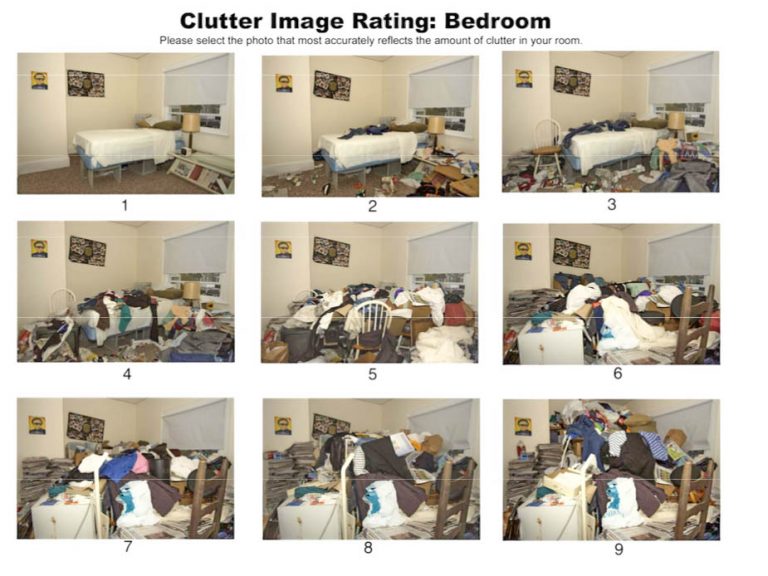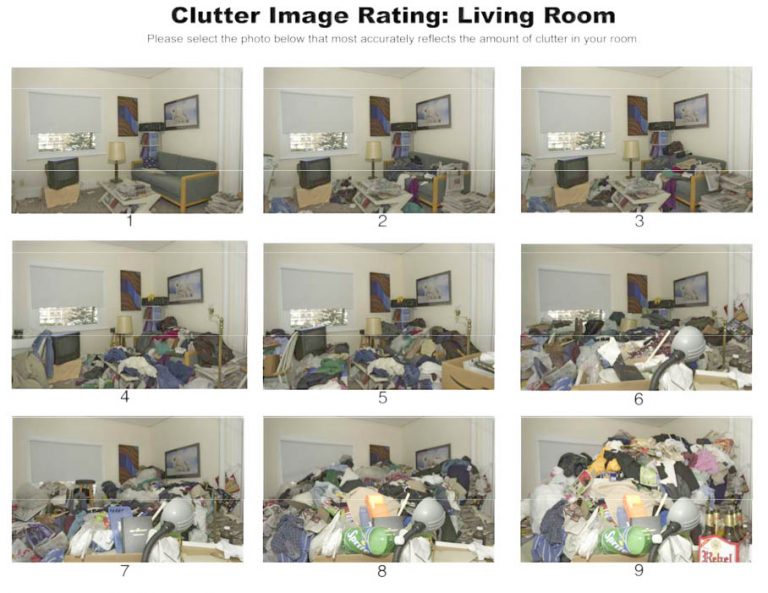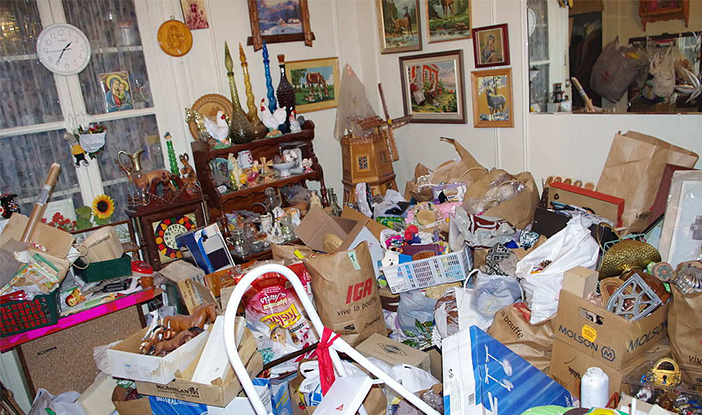The start of new year is the perfect time to clear accumulated clutter—as well as leftover clutter from the holidays.
Having too much clutter in your home can lead to stress and the feeling of being overwhelmed. For some, it’s a very real and serious problem.
Dr. Sheila Woody, a UBC psychologist who specializes in hoarding disorder, says that clutter can affect mental health.
“It’s stressful to be in a cluttered environment,” says Woody.
Dr. Woody’s research on the effects of hoarding could shed light on potential intervention strategies. Woody, who is the director of UBC’s Centre for Collaborative Research on Hoarding, is seeking participants for research that aims to better understand cognitive processes involved in the accumulation of items in the home.
“We want to know why people decide to acquire certain items” Woody explained. “Also, why would they decide to keep these things when it’s clearly getting in their way?”
Woody has observed that people who hoard often value their possessions so highly that they find it extremely difficult to discard these items over time. In this way, hoarding is a passive activity.
“Not parting with clothes that are stained or worn out or don't fit you anymore. Not prioritizing different containers for things worth keeping and those you should recycle—these decisions centre around emotions like anxiety, pride and the desire to adopt a new identity.”
Studying hoarding behaviour comes with its fair share of challenges. Woody has found that the biggest challenge is trying to figure out if an individual truly has a hoarding problem without actually visiting their home.
“When people report to us about what conditions are like in their home, they’re using some sort of reference point,” Woody said. “We don’t know where that reference point is and we may have a different reference point.”
As a result, Woody tends to receive potential participants who think they have a hoarding problem because their home is not what she calls “Marie Kondo perfect.” When in fact, these people are unaware of the scale and magnitude of hoarding.
In contrast, Woody has also seen research participants with severe hoarding problems.
“If they describe their situation, they may say: ‘I have no problem. My clutter is shoulder high in my apartment, but I can still do everything,’” Woody said.
She explained that this is because people have accommodated to the clutter to the point that they don’t even notice it.
Woody and members of the Centre for Collaborative Research on Hoarding use the Clutter Image Ratings (images below) to assist in determining the level of clutter accumulated. Some individuals begin to notice difficulty using areas of their home when the volume of clutter reaches a four or five on the scale.




Woody hopes that this research will help to illuminate other reasons that makes organization so difficult for people who hoard. In turn, she also hopes that her research can develop new strategies to alleviate the distress that these people experience.
By Dannielle Piper with contributions by UBC Psychology.
Participate
The Centre for Collaborative Research on Hoarding is seeking participants for a study on cognition in hoarding. To take part or for more details visit: hoarding.psych.ubc.ca



